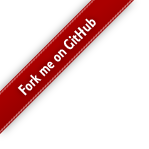Combining particle-based and continuum modelling in soft matter physics with ESPResSo, PyStencils, and LbmPy
Date:
Oct 11-15, 2021
Location:
online course (hybrid format)
Register:
https://www.cecam.org/workshop-details/1070
Confirmed speakers
- Friederike Schmid (University of Mainz)
- Jens Harting (University of Erlangen–Nuremberg)
- Markus Holzer (University of Erlangen–Nuremberg)
- Marjolein Dijkstra (Utrecht University)
- Ivan Cimrák (University of Žilina)
- Peter Košovan (Charles University)
Notes from the Organizers
Due to restrictions related to the current Covid-19 situation, we have decided to offer the school mostly as an online event. If the Covid-rules applicable in autumn will permit, we might offer a small number of on-site places.
We will maintain the highly interactive format of the school. Lectures and talks will be streamed live on Zoom. Hands-on sessions will be tutored by experienced ESPResSo users and developers in small groups of participants, remotely via Zoom. There will be additional opportunities for scientific exchange during the user & developer meeting and the interactive talks.
The originally planned dates for the school are maintained. The coding sessions will take place in the afternoon, Central European Summer Time (UTC+02:00). Some tutoring groups could start later to accommodate for participants from different time zones, if there is sufficient interest.
Although this course is offered online, it is not designed as a MOOC: participation will be highly interactive, which limits the number of participants we can accept in the tutoring sessions. When registering for this course, please mention whether you are interested in taking part in the interactive tutorials, or if you are just interested in watching the lectures and talks.
Course description
In this school, participants learn to conduct simulations in the fields of statistical physics, soft matter and active matter using the software ESPResSo. It is an open-source particle-based simulation package with a focus on coarse-grained molecular dynamics models. In addition, it offers a wide range of schemes for solving electrostatics, magnetostatics, hydrodynamics and electrokinetics, as well as algorithms for active matter, rigid bodies, and chemical reactions[1].
ESPResSo consists of an MPI-parallelized simulation core written in C++ and a scripting interface in Python. This allows for good interoperability with other science and visualization tools for Python. ESPResSo can join forces with waLBerla, a high performance code for lattice-Boltzmann hydrodynamics and other lattice-based schemes for electrokinetics and related fields[2].
In this school, after an introduction to particle-based simulations and the simulation codes, we will focus on combining particle- and field-based approaches in simulations of soft matter. We will explore topics such as electrophoretic mobility of colloids, diffusion of polymers, and describing ions on the continuum level via electrokinetic equations.
We will provide an introduction to PyStencils[3] and LbmPy. These Python packages allow for the rapid prototyping of lattice-based algorithms, which can then be used together with waLBerla and ESPResSo. These packages are also used to generate the lattice-Boltzmann and electrokinetics kernels in ESPResSo.
Lectures will provide an introduction to the physics and simulation model building as well as an overview of the necessary simulation algorithms. During the afternoon, participants will practice running their own simulations in hands-on sessions. The teaching material will be provided electronically to the participants.
Many of the lectures and hands-on sessions will be taught by developers of the software. Hence, the school will also provide a platform for discussion between developers and users about the future of the software. Also, users can get advice on their specific simulation projects. The final day of the school will be dedicated to research talks on projects that have been conducted using ESPResSo and waLBerla.
Attendance to the summer school is free.
[1] F. Weik, R. Weeber, K. Szuttor, K. Breitsprecher, J. de Graaf, M. Kuron, J. Landsgesell, H. Menke, D. Sean, C. Holm, Eur. Phys. J. Spec. Top., 227, 1789-1816 (2019) DOI:10.1140/epjst/e2019-800186-9
[2] M. Bauer, S. Eibl, C. Godenschwager, N. Kohl, M. Kuron, C. Rettinger, F. Schornbaum, C. Schwarzmeier, D. Thönnes, H. Köstler, U. Rüde, Computers & Mathematics with Applications, 81, 478-501 (2021) DOI:10.1016/j.camwa.2020.01.007
[3] M. Bauer, J. Hötzer, D. Ernst, J. Hammer, M. Seiz, H. Hierl, J. Hönig, H. Köstler, G. Wellein, B. Nestler, U. Rüde, Code generation for massively parallel phase-field simulations. Published in: Proceedings of the International Conference for High Performance Computing, Networking, Storage and Analysis (2019) DOI:10.1145/3295500.3356186


